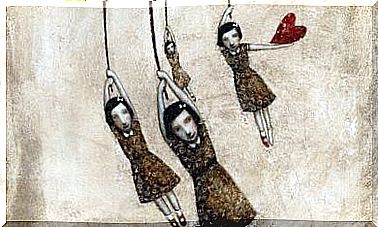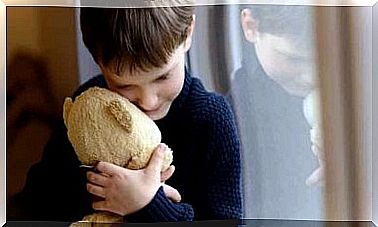A Psychological Perspective On Wisdom

Intelligence experts and psychologists have been studying the concept of wisdom for a long time. It has a scientific definition that goes beyond the popular perception of wisdom as the knowledge our elders have. In this article, we will discuss the psychological perspective on wisdom.
However, since it is an abstract subject, it can be difficult to study by the scientific method. However, many researchers published interesting works (English article) about it.

What is the psychological perspective on wisdom?
Some people define wisdom as expert knowledge about practical life. Many authors have tried to identify the specific components of wisdom. Although they vary slightly, authors often point out the following elements:
- Interpersonal skills. Level of knowledge, sensitivity and sociability when dealing with others. Interpersonal skills allow an individual to adapt to the needs of others and enable the most effective interaction.
- Communication skills and common sense. Wisdom, which people usually associate with experience, implies having knowledge and being able to give advice. For example, wise people can help others with their problems and come up with practical solutions that others cannot see.
- Understanding. Wise people, who can cultivate emotions and life experiences, can understand and empathize with others.
- General ability. This is probably something people usually associate with wisdom. The sages are intelligent, educated, very knowledgeable in various fields and they also know how to convey this knowledge.
Does wisdom always imply knowledge?
Experts seem to emphasize two factors in particular as the most important components of wisdom: exceptional understanding and the skills of sound judgment and communication. As a result, some people are very wise despite their limited knowledge of the world.
All the elements we mentioned above suggest a concept of wisdom based largely on emotional and interpersonal skills. In other words, wisdom goes far beyond cognitive skills.
Wisdom according to Holliday and Chandler (1986)
These two authors argued that wisdom includes:
- acumen
- involvement with others
- consideration
- cleverness
- intuition
- know your limits
- logic
- experience
- a logical mind
- good problem solving skills
- learn from your mistakes
Holliday and Chandler’s definition tends to relate wisdom more to cognitive factors and abilities that enable a person to engage in appropriate and skillful problem solving.
Wisdom according to Sternberg (1985)
Sternberg, on the other hand, defines a wise person as someone who is sensitive and sociable. Someone who has good judgment and communication skills and understanding of life. He also sees it as a person who learns from experience and who can see things from different points of view.
In addition to all these interpersonal and emotional skills, he claims that a wise person is intelligent, educated and generally competent.
How do scientists analyze wisdom?
There are ways to evaluate a person’s wisdom with standardized tests and qualitative procedures. These methods can be divided into two main groups:
- Scheduling tasks. The individual has to take a test where he has to make a decision at a certain stage of life. In the test, the individual answers aloud what he would do in the given circumstances, what the long-term impact of the decision would be, and what other information he would need but not included in the task, to make his decision.
- Assessing tasks. Individuals are instructed to look at hypothetical paths that people have chosen at different times in their lives. They have to re-examine the decisions out loud and also reconstruct and evaluate what the people in question would say about their choices in their lives when they got old.
Task example: Tadeo wants to get married
An example of a hypothetical situation that the test taker could analyze is the following: Tadeo is an 18-year-old young man who decides to marry his boyfriend, whom he met nine months ago.
The test taker should use this information by considering aloud what Tadeo should think about to make his decision.
He would have to reconstruct from Tadeo’s perspective the story, the different moments in the story, the possible reasons that led Tadeo to make this decision and an evaluation of this decision.

Can you train people to be wise?
Many authors have talked about the components of wisdom. However, there is much disagreement about it. Researchers mainly look at the components that are generally accepted to find out how people can learn to improve their skills.
For example, when making a decision, it is important to understand the following: contextualism, relativism, and uncertainty. The only factor so far that researchers have been able to train to improve is relativism and the composure and restraint it offers. However, it still seems like a lofty goal to “train” someone to be wise.
What does the psychological perspective on wisdom disregard?
However, something that the standardized tests don’t seem to measure is the emotional factors of wisdom. They are usually better at testing intelligence, such as logical and math skills, or spatial intelligence.
It is also important to remember that there is still no broad consensus on the meaning of the word wisdom itself. It is open to interpretation and as such it is difficult to measure. The difference in definitions therefore means that the research results can be considerably one-sided.









